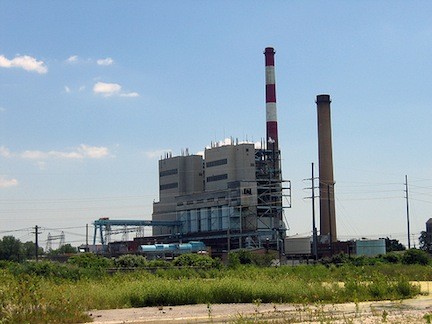LIPA seeks to cut tax payments to local schools
Utility accounts for nearly half of Island Park tax levy base
The Long Island Power Authority’s effort to settle tens of millions of dollars in tax grievance cases it has filed against local school districts and municipalities, including Oceanside and Island Park, could mean problems for those districts in the coming years.
The authority, as part of overhaul legislation backed by Gov. Andrew M. Cuomo this summer, had given the two school districts until Oct. 20 to settle the cases, but neither accepted, according to LIPA spokesman Mark Gross.
LIPA has proposed trimming millions of dollars in its annual tax payments to each of the districts and municipalities over 10 years starting in 2014, while giving up its claims to past overpaid taxes, which amount to tens of millions of dollars more. If there are no settlements and LIPA wins the challenges in court, taxpayers would face a significantly higher bill, including retroactive payments to LIPA for taxes it has paid in the past based on an over-assessment.
LIPA says that its plants — which include the Barrett Power Plant in Island Park — are over-assessed by upward of 90 percent, and have been depreciating for decades as they neared the end of their useful lives. The Barrett plant opened in 1956, and a second unit was added in 1963.
According to LIPA, Oceanside receives approximately $13.6 million in taxes annually from the utility, while Island Park receives $22.3 million yearly. For Island Park, that amounts to 46 percent of the school district’s tax levy. Officials in Island Park say that should the utility prevail in court with its claims of over-assessment, either the tax rate for homeowners would rise dramatically or numerous school programs would be on the chopping block.
The Oceanside district receives a much smaller percentage of its overall revenue from the utility. Louis Frontario, the district’s business manager, said that Class 3 properties — utilities — provide 9.8 percent of the tax levy.
LIPA proposed paying Oceanside $9 million per year over the next 10 years and Island Park, $10.05 million. LIPA officials say that offer has expired, but district officials do not see it that way.
“We are working with counsel, and have reviewed LIPA’s offer,” Frontario said. “We look at that offer as a starting point for negotiations. The expiration date set by the utility is an arbitrary date, and we don’t look at it as a drop-dead date. There is no panic in Oceanside, and we’re taking it one day at a time. We would hope that we can get LIPA to be more generous in its next offer.”
Frontario acknowledged, however, that the tax question is problematic. “If the Class 3 tax levy is significantly reduced, then the money has to be made up in one of the other classes, commercial or residential,” he said. “That remains to be seen, and it is liable to be a long negotiation.”
“We got involved in the negotiations more than a year ago, and in the negotiations with the county more recently,” said attorney Robert Cohen, who represents Island Park in the lawsuit. “This is early in the court process, but we are taking LIPA’s demands seriously. There will be a discovery process and then a lengthy appraisal process. LIPA said that the Barrett plant has lost 90 percent of its value, but a New York state appraisal made in the last two years said that its value is still the same. They support the assessed valuation, and we hope that will prevail, because the plant will remain online. It will remain as part of the grid, and that alone makes it more valuable.”
Cohen added that it is unusual in cases such as this for either side to get all it wants. If LIPA wins, or if the negotiations are unsuccessful, he said, it would be “devastating for the Island Park schools.”
“LIPA remains open to any settlement discussions related to the tax litigation,” a company spokesman said this week.
“We are always working to settle cases,” said Nassau County Attorney John Ciampoli. “However, we are also prepared to move forward and fight this case in court to protect our taxpayers.”
Frontario added that discussions with LIPA have been “amicable,” and that he hoped that the courts would find the utility’s demand for lower taxes “null and void.”






